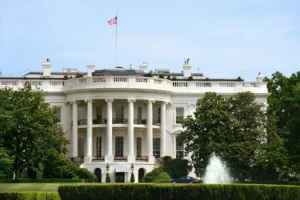This morning’s statement from Chancellor Kwasi Kwarteng has certainly got plenty for IFAs to consider as he revealed the Government’s plan for economic growth to boost the UK economy and make us a nation entrepreneurs. With a huge package of tax cuts, tax incentives and reversal of previous measures all now introduced, the likes of which we’ve not seen in the UK for decades.
Initial comments from advisers, mortgage brokers and property experts are already coming in to us at IFA Magazine, so here are some of the early thoughts we’re hearing:
Philip Dragoumis, owner of London-based wealth manager, Thera Wealth Management: “This budget is fiscally reckless. It’s Trussmoronics not Trussonomics. There has been no independent assessment or costing from the Office of Budget Responsibility. If you cut taxes while at the same time spending billions on energy subsidies, and just put the bill onto government borrowing, people will not spend their extra money because they know that the bill is coming further down the line. Extra government borrowing and higher bond yields crowd out growth. Markets will lose confidence in UK assets, bond yields will continue to rise and Sterling will continue to fall. Also, how will less stamp duty help first-time buyers when mortgage affordability is decreasing as interest rates go up?”
Joe Garner, managing director at London-based property developer, NewPlace: “Introducing a cut to stamp duty five weeks prior to the deadline for help-to-buy loans is likely to see a mass surge of last minute transactions, followed by a huge drop-off after the deadline ends. It is irresponsible, populist politics that will likely see house prices increase further and decouple even more from income. It is likely to be the final push on the pump that sees the housing price bubble burst, leaving recent first-time buyers and purchasers in negative equity, whilst speculators swoop in on below market opportunities.”
David Robinson, chartered wealth manager at London-based Wildcat Law: “The removal of the cap on bankers’ bonuses is beyond irresponsible. It’s as if everyone has forgotten why the restrictions were put in place, namely because bonuses were found to be a contributing factor to the banks’ practices that directly led to the Global Financial Crisis. Bonuses promote short-term behaviours and hence risk taking to generate profit as quickly as possible, with no implications for sustainability. As someone who spent years repairing some of the damage done in 2008, it is very concerning that just at the point the banks are back on a stable footing, the government is removing many of the checks and balances put in place to keep them there. Large cash bonuses do nothing to promote stable growth, they simply increase the potential reward for taking risks. Arguments that the accountability rules will prevent this seem very hollow when we look at the almost non-existent enforcement of these rules with regards to senior individuals.”
Scott Gallacher, chartered financial planner at Leicestershire-based independent financial advisers, Rowley Turton: “This was a very aggressive tax-cutting budget from the new Chancellor. In the short-term, taxpayers will welcome those tax cuts, especially given the cost of living crisis. The big question is whether these tax cuts will generate sufficient growth to off-set the tax the Chancellor has given up. It’s a big gamble from Kwarteng and, if it doesn’t come off, it’s one that we could all be paying for for years to come. Fingers crossed he’s right.”
Lewis Shaw, founder of Mansfield-based Shaw Financial Services: “The ideology is strong in Mr Kwarteng and this is evident in his sweeping tax cuts. With the stamp duty changes that take effect from today, anyone buying up to £250,000 won’t pay a penny in stamp duty land tax and first-time buyers will benefit with the cap lifted from £300,000 currently to £425,000. For aspiring home owners this is great news. Along with this we’ve had income tax cuts and the cancellation of the planned corporation tax rise all of which is intended to put more money into people’s pockets and boost economic activity. It’s certainly a bold and radical plan for growth. Let’s hope the fantasy lives up to reality.”
Adrian Kidd, chartered wealth manager at Aylesbury-based EQ Financial Planning: “How is all of this going to be paid for? Fiscally, Friday was a phenomenal event yet the Government is not allowing the OBR to provide an independent forecast. This will worry currency markets, as we need foreign buyers of gilts to pay for these plans. Markets are clearly concerned and it may get worse. The removal of the cap on bankers’ bonuses is more a message we are open for business. This would be better delivered by making the UK a Singapore of sorts, exactly what we needed to do in a post-Brexit world and attract more big businesses to HQ here. It’s what made Dublin a big success for Ireland when it joined the Euro. Yet again, stamp duty is a misdirected use of the cash in the coffers. Why do we continually try to stimulate the housing market? It’s policy error pure and simple. Focus on supply for god’s sake.”
Amit Patel, adviser at Welling-based mortgage broker, Trinity Finance: “The cap on bankers’ bonus being scrapped is the wrong decision at a time when inflation is spiralling out of control. This will push up inflation further as bankers’ spend their money and will leave the ‘ordinary’ citizen even more worse off.”
Samuel Mather-Holgate of Swindon-based advisory firm, Mather & Murray Financial: “This is a great budget for business owners. However it’s a growth-gamble. If it works, we could avoid a recession but if it doesn’t we will add billions to the national debt and lose confidence on international markets. The OBR haven’t published forecasts and Kwarteng has avoided that due to the eye-watering figures. We will see, in the coming months, whether a clearly ideological budget pays off or blows the wheels off the economy.”
Mark Robinson, Managing Director of Southampton-based Albion Forest Mortgages: “Some great announcements for the housing market, if slightly short-sighted. First-time buyers will definitely be pleased with the changes to stamp duty. In my opinion the changes have been long overdue as house prices have soared. With the higher rate of tax being scrapped, it will be interesting to see what moves lenders will make in the coming months.”
Marcus Wright, MD of independent mortgage broker, Bolton Business Finance: “I’m all for tax cuts, as I’m sure many people are! In fact most people would happily pay no tax ever on anything, however that leaves us with a problem. How do we pay for all the vital services and critical national expenditure like defence and the NHS? This mini budget will certainly be welcome to many households and small businesses but I worry about our national debt. Surely this requires a massive reduction in government spending elsewhere and a big reduction in the civil service?”
Edgar Rayo, chief economist at London-based finance broker, Finanze: “Truss’ trickle-down economics is expected to translate to growth in domestic consumption and investment. These tax cuts were designed to spur private economic activity from high-income earners. This will relieve them at a crucial period when the country is taming severe runaway inflation and sterling is dropping to its lowest level in 37 years. UK employers will now get away with shouldering almost £9 billion in contributions after the reversal of the National Insurance hike set in April. In addition, the increase in the stamp duty threshold to £425,000 for first time home buyers will certainly jump-start market activity again as this accommodates buyers in the higher price range. The government is counting on the rich to save more and channel this into the banking sector, which can then lend more to households. However, taxpayers need to be aware of the imminent budget deficit from these policies since no windfall tax has been mentioned by Kwarteng.”


















